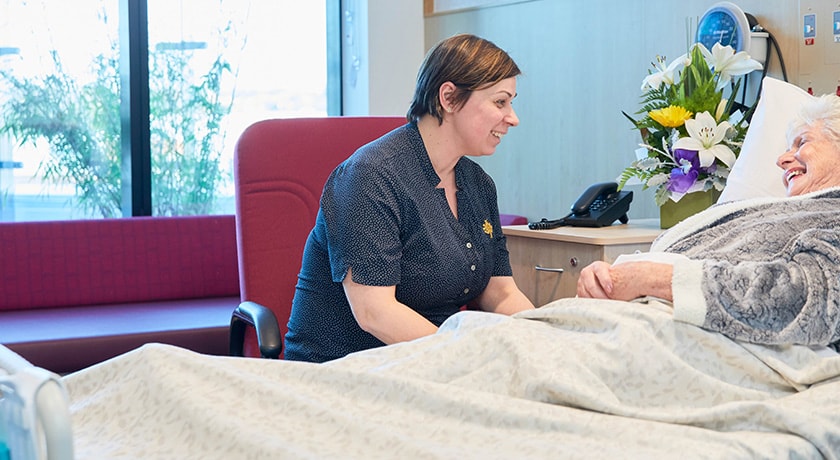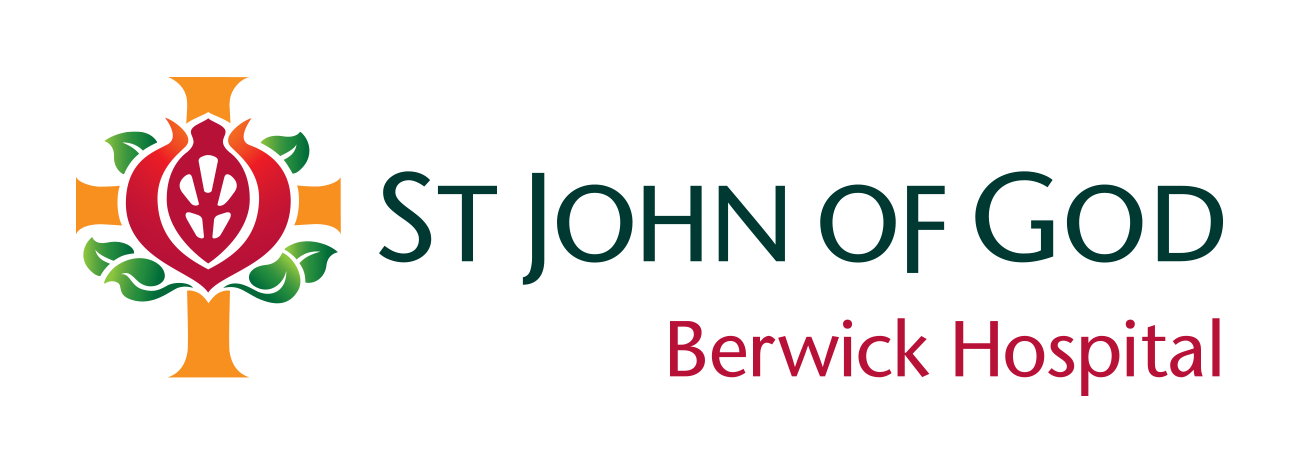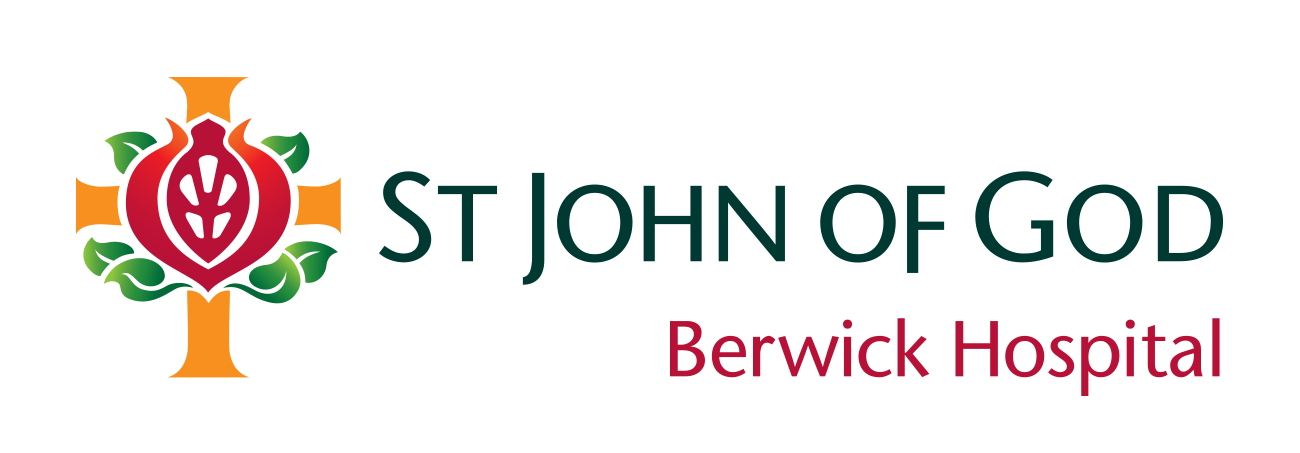Celebrating Pastoral Care and Spiritual Care Week
26 Oct 2020

“The greatest misconception out there is that the aim of pastoral care practitioners is to convert people to religious faith” laughs Karen Rolfe, Pastoral Services Manager for St John of God Health Care’s South East Melbourne (SEM) hospitals.
“We are, in fact, solely dedicated to providing a holistic approach to the care and wellbeing of our patients regardless of a person’s cultural, spiritual or religious affiliations.” These days pastoral or spiritual care, particularly in a healthcare setting, is widely accepted to be an integral part of a multidisciplinary approach to a patient’s overall wellbeing.
“Our Pastoral Services team provides a free, confidential, supportive presence where patients, family and carers can discuss their concerns,” explains Karen.
“Our team members not only hold, or are working toward, tertiary qualifications in pastoral studies/theology, they often hold a qualification in another healthcare field as well. Pastoral practitioners are focused on where patients find meaning in their lives, supporting personal beliefs in a non-judgemental way. It enables practitioners to respond sensitively to the needs of their patient’s.”
The Pastoral Services team is there to offer people an opportunity to talk. In times of illness, pain or stress, patients may find themselves feeling more vulnerable than they normally would and being able to talk to someone about their feelings and experiences can provide great comfort and relief. “We’re available to listen,” says Karen. “We can be there to offer support and help you reflect on what is happening to you so that your situation can be understood with compassion and empathy.” It is an intentional model of care for patients at their most vulnerable time.
During the pandemic period, Pastoral Practitioners at St John of God Health Care’s Frankston Rehabilitation Hospital and Pinelodge Clinic have been able to respond to the restrictions placed on visiting and concerns around infection transmission by learning new skills such as Telehealth/phone sessions and video calls between patients and families – which all helped to maintain connection and decrease loneliness and anxiety.
One family member in particular expressed gratefulness for the arrangement of the call saying that it had been an enormous source of comfort and reassurance to them. Linda McDermid, Pastoral Practitioner at Pinelodge Clinic, added that using Telehealth sessions to maintain connection and support for patients was still a positive experience that enabled some people to open up more despite the lack of face-to-face interaction.
Pastoral services proved to be essential during the recent COVID crisis which saw 30 aged-care patients being transferred to St John of God Berwick Hospital in July this year. Carol Ashcroft, a pastoral practitioner of four years, was launched onto the front line within two hours of being told the possibly COVID-positive patients were on their way.
“At the start of the year when our hospitals were preparing for potential COVID-19 residents, the Director of Mission Integration for SEM hospitals, Rhonda O’Connor, had discussed with me the possibility of working with infected patients – I didn’t know it was going to become a reality until I received a call from her telling me 30 aged care patients were already in transit.”
Reporting to work two hours later that same day, Carol was designated to be the primary contact for the patients’ families, as well as liaise with nurses about the pastoral needs of both the aged-care residents and the caregivers who would look after them.
Carol had to adapt quickly to offering pastoral services in a setting that was completely unfamiliar to her and at a time in her career that up until now was, dare it be said, entirely “unprecedented”. Working with nurses to provide care via telephone and through Zoom calls became the norm, along with wearing PPE clothing and equipment.
One aspect of the job that was particularly hard to get used to was supporting families who were not allowed to visit their dying relatives for longer than 20 minutes. Even worse was their inability to even touch them.
“Touch can be so powerful in terms of being therapeutic for both the dying and the person doing the touching,” explains Karen. “To deny that was difficult for everyone.” However the Pastoral Services team rose to the challenge offering ongoing compassion and time with the families once they left the room and also after their loved ones had passed.
“When it was time for family members to leave, we were waiting outside, ready to continue the care and to provide space for the families to grieve,” says Carol, adding that “Pastoral care of the dying and supporting their families is a service that St John of God Health Care takes pride in.”
The team also devised unique ways to continue to support families once they had left the hospital by sending follow-up cards and making calls to the bereaved family members.
Pastoral Services isn’t solely there for the wellbeing of patients however - supporting caregivers was also a top priority. “We were able to facilitate a ‘Pause Ritual’ after a death,” explains Carol.
“Which was designed to allow caregivers an opportunity to reflect on the unique identity of the patient who passed, acknowledge their own sadness and give thanks for the care they were able to provide.”
Carol goes on to say, “I feel very proud of the emotional and spiritual care we were able to provide. I not only experienced personal and professional growth but I was able to witness how pastoral practice is an integral part of how St John of God Health Care offers an holistic, compassionate approach to patients and their families.”
You may interested in...

